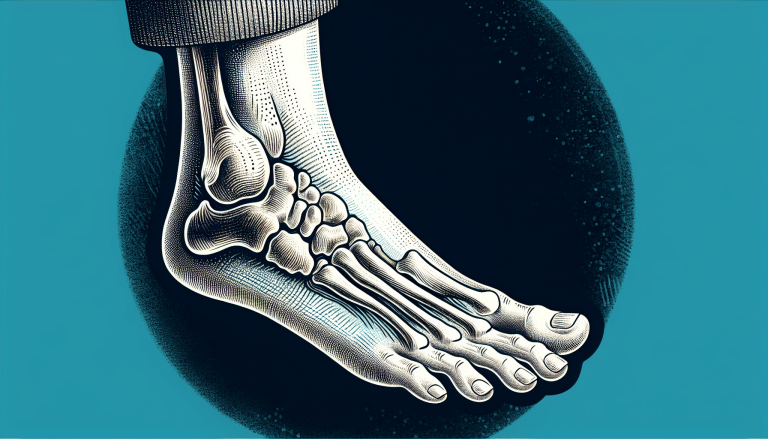Can Blurry Vision Be Cured?
Imagine a world where you can see the world in crystal clear detail, where blurry vision is a thing of the past. But is it really possible to cure blurry vision? This article explores the potential solutions and advancements in the field of vision correction that could offer hope to those longing for clear sight. So sit back, relax, and let’s explore the exciting possibilities that could bring clarity back into your life.

Causes of Blurry Vision
Refractive errors
Refractive errors occur when the shape of your eye prevents light from focusing directly on the retina. This can result in blurry vision, making it difficult to see objects clearly. Common refractive errors include nearsightedness (myopia), farsightedness (hyperopia), and astigmatism. These conditions can be corrected with the use of eyeglasses, contact lenses, or refractive surgery.
Cataracts
Cataracts occur when the lens of the eye becomes cloudy, causing blurry vision. This condition is often related to aging, but can also be caused by certain medical conditions, such as diabetes, or prolonged exposure to UV radiation. Cataract surgery is a common and effective treatment for cataracts, where the cloudy lens is replaced with an artificial lens.
Glaucoma
Glaucoma is a group of eye diseases characterized by damage to the optic nerve, often due to increased pressure in the eye. Blurry vision is one of the early symptoms of glaucoma. If left untreated, glaucoma can lead to permanent vision loss. Treatment options for glaucoma include medicated eye drops, oral medication, laser therapy, and surgery.
Macular degeneration
Macular degeneration is a condition that affects the macula, a small area in the center of the retina responsible for central vision. Blurry vision is a common symptom of macular degeneration, and it can progress to loss of central vision over time. While there is no cure for macular degeneration, certain treatments and lifestyle changes can help slow down its progression and manage its symptoms.
Diabetic retinopathy
Diabetic retinopathy is a complication of diabetes that affects the blood vessels in the retina. It can cause blurry vision and, if left untreated, may lead to blindness. Controlling blood sugar levels, managing blood pressure, and regular eye examinations are crucial in preventing and managing diabetic retinopathy. Treatment options include laser therapy, medication, and surgery.
Available Treatments
Eyeglasses
Eyeglasses are a common and effective way to correct blurry vision caused by refractive errors. They work by refracting light entering the eye, compensating for any abnormalities in the eye’s shape. With a precise prescription, eyeglasses can provide clear vision and improve overall visual acuity.
Contact lenses
Contact lenses are another popular option for correcting refractive errors and providing clear vision. They are placed directly on the eye, offering a wider field of vision compared to eyeglasses. Contact lenses come in various types, including soft lenses, rigid gas permeable lenses, and multifocal lenses, catering to different needs and preferences.
LASIK surgery
LASIK (Laser-Assisted In Situ Keratomileusis) surgery is a surgical procedure used to correct refractive errors. It involves reshaping the cornea using a laser, allowing light to focus properly on the retina. LASIK surgery is a popular choice for those who want to reduce their dependence on glasses or contact lenses and achieve clearer vision.
Cataract surgery
Cataract surgery is the most effective treatment for cataracts. During the procedure, the cloudy lens is removed and replaced with an artificial lens, known as an intraocular lens (IOL). This restores clear vision and enhances the quality of life for individuals with cataracts.
Medication for underlying conditions
In some cases, blurry vision may be caused by an underlying medical condition, such as diabetes or high blood pressure. Treating these underlying conditions with medication can help improve vision and prevent further complications.
Preventive Measures
Regular eye exams
Regular eye exams are essential for maintaining healthy vision and detecting any potential eye problems early on. Eye exams can help identify refractive errors, cataracts, glaucoma, macular degeneration, and diabetic retinopathy, allowing for prompt treatment and management.
Maintaining a healthy lifestyle
Adopting a healthy lifestyle can contribute to better overall eye health. This includes eating a balanced diet rich in fruits and vegetables, maintaining a healthy weight, exercising regularly, and avoiding smoking.
Protecting your eyes from UV radiation
Excessive exposure to UV radiation can increase the risk of developing certain eye conditions, such as cataracts and macular degeneration. It is important to protect your eyes from the sun’s harmful UV rays by wearing sunglasses that provide 100% UV protection and a wide-brimmed hat.
Taking breaks from digital screens
Prolonged exposure to digital screens, such as those of computers, smartphones, and tablets, can cause eye strain and blurry vision. To prevent this, it is recommended to follow the 20-20-20 rule: every 20 minutes, take a 20-second break and focus on something 20 feet away.
Natural Remedies
Eye exercises
Eye exercises can help strengthen the eye muscles and improve focus. These exercises often involve eye movements, focusing on different distances, and using visual aids. While they may not directly cure blurry vision, they can be beneficial in maintaining good eye health.
Eating a balanced diet
A balanced diet that includes nutrients like vitamins A, C, E, and minerals like zinc and omega-3 fatty acids can support overall eye health. Foods rich in these nutrients include leafy green vegetables, citrus fruits, nuts, and fish.
Herbal supplements
Certain herbal supplements, such as bilberry, ginkgo biloba, and saffron, are believed to have potential benefits for maintaining eye health. However, it is crucial to consult with a healthcare professional before taking any herbal supplements to ensure safety and effectiveness.
New Technological Advancements
Refractive lens exchange
Refractive lens exchange is a surgical procedure where the eye’s natural lens is replaced with an artificial lens to correct refractive errors. This procedure is similar to cataract surgery but is performed before the lens becomes cloudy. Refractive lens exchange can provide long-lasting clear vision and reduce the need for glasses or contact lenses.
Intraocular lens implants
Intraocular lens (IOL) implants are commonly used in cataract surgery, but they can also be implanted in individuals with refractive errors. These implants can correct nearsightedness, farsightedness, and astigmatism, providing improved vision without the need for glasses or contact lenses.
Corneal collagen cross-linking
Corneal collagen cross-linking is a procedure used to strengthen the cornea in individuals with keratoconus, a condition that leads to progressive thinning and bulging of the cornea. By using a combination of riboflavin eye drops and ultraviolet light, corneal collagen cross-linking can help stabilize the cornea and improve vision.
Gene therapy
Gene therapy is a promising area of research that aims to treat genetic eye conditions by introducing functional genes into the retina. This innovative approach has the potential to correct genetic mutations that cause blurry vision, offering a potential cure for certain inherited eye diseases.
Importance of Early Detection
Regular eye exams
Regular eye exams play a crucial role in detecting and managing eye conditions early on. By regularly visiting an optometrist or ophthalmologist, any changes in vision can be promptly addressed and treated, helping to prevent further deterioration.
Recognizing symptoms
Being aware of the symptoms of various eye conditions, such as blurred vision, eye pain, redness, or sudden vision loss, can prompt individuals to seek medical attention. Early recognition of these symptoms increases the chances of successful treatment and better outcomes.
Seeking immediate medical attention
If you experience sudden and severe blurry vision, it is important to seek immediate medical attention. This could be a sign of a more serious underlying condition or an eye emergency that requires prompt treatment to prevent permanent vision loss.
Research and Studies
Current research on vision restoration
Ongoing research focuses on developing new techniques and technologies to restore vision in individuals with various eye conditions. These studies explore approaches such as stem cell therapy, retinal prosthetics, and retinal gene therapy, offering hope for potential future treatments.
Experimental treatments
Experimental treatments, such as implantable mini-telescopes for macular degeneration or electronic retinal implants for certain types of blindness, are currently being investigated in clinical trials. These experimental treatments aim to restore vision or improve visual function in individuals with severe visual impairments.
Stem cell therapy
Stem cell therapy shows promise in regenerating damaged cells in the eye and restoring vision. Researchers are exploring different stem cell sources, such as embryonic stem cells and induced pluripotent stem cells, to develop innovative treatments for various eye conditions.
Living with Blurry Vision
Adapting to visual impairment
Living with blurry vision can present challenges, but there are various strategies to help adapt to visual impairment. These can include using assistive devices, organizing living spaces effectively, and developing alternative techniques for daily activities.
Support groups and resources
Joining support groups or seeking resources specifically for individuals with visual impairments can provide valuable emotional support and practical advice. These groups can offer guidance on living with blurry vision, sharing experiences, and accessing helpful resources.
Assistive devices
Assistive devices can greatly enhance quality of life for individuals with blurry vision. These can include magnifying glasses, screen readers, text-to-speech software, and smartphone applications specifically designed for those with visual impairments.
FAQs about Blurry Vision
Can blurry vision go away on its own?
Blurry vision can sometimes go away on its own if it is caused by temporary factors such as eye fatigue, dryness, or a mild refractive error. However, if blurry vision persists or worsens, it is important to seek medical attention to determine the underlying cause and receive appropriate treatment.
Can stress cause blurry vision?
Stress can cause blurry vision in some individuals. Increased stress and anxiety can lead to changes in blood pressure and circulation, affecting the eye’s ability to focus properly. Managing stress through relaxation techniques, exercise, and seeking support from healthcare professionals can help alleviate blurry vision.
Is there a cure for age-related macular degeneration?
While there is currently no cure for age-related macular degeneration, there are treatments available to manage the condition and slow down its progression. These treatments include medications, laser therapy, and regular monitoring by an eye care professional.
Can wearing glasses worsen my vision?
No, wearing glasses does not worsen vision. In fact, wearing the correct prescription glasses can improve vision clarity and reduce eyestrain. It is important to get regular eye examinations to ensure your prescription is up to date and to address any changes in your vision.
Can certain medications cause blurry vision?
Yes, certain medications can cause blurry vision as a side effect. Medications such as antihistamines, antidepressants, and certain blood pressure medications can impact vision. If you experience blurry vision while taking medication, consult with your healthcare provider to discuss possible alternatives or adjustments to your treatment plan.
Conclusion
If you are experiencing blurry vision, it is important to seek professional help from an eye care specialist. They will be able to properly diagnose the cause of your blurry vision and recommend the most suitable treatment options. Additionally, taking preventive measures, such as maintaining regular eye exams, adopting a healthy lifestyle, protecting your eyes from UV radiation, and taking breaks from digital screens, can help maintain good eye health and reduce the risk of blurry vision. Remember, early detection and prompt treatment are key to preserving your vision and enjoying optimal eye health.
Additional Resource

Imagine no more fear or anxiety about not seeing well. No more frustration that you can’t cook, read, knit, golf, garden, do crossword puzzles, and all the other activities you love. No more humiliation because you feel like a burden to your family, feeling their frustration growing.
You can say goodbye to all of this and more by watching a short video presentation:
https://bit.ly/macular-degeneration-treatment







